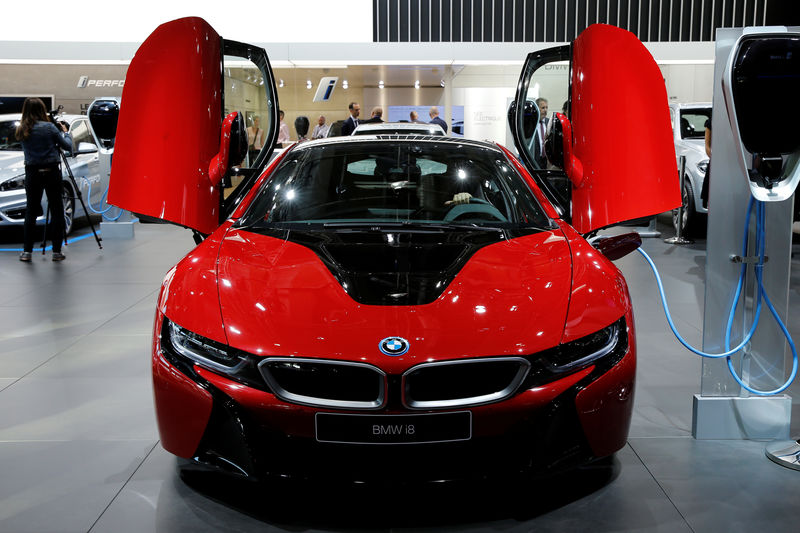FRANKFURT (Reuters) - German carmaker BMW (DE:BMWG) on Wednesday reported a 27 percent drop in third-quarter operating profit to 1.75 billion euros ($2 billion), missing analyst expectations amid currency headwinds and higher research and development expenses.
Analysts in a Reuters poll had on average expected earnings before interest and taxes (EBIT) to come to 1.795 billion euros.
BMW shares (F:BMWG) fell 2.6 percent in early Frankfurt trade.
BMW said that despite a slight rise in deliveries of luxury cars, its operating return on sales for the automotive division narrowed to 4.4 percent from 8.6 percent a year earlier, well below its targeted range of 8 to 10 percent.
Earnings were hit by higher raw material prices, currency effects, higher provisions for goodwill and warranty measures, tariffs between China and the United States and a price war in Europe, the carmaker said.
BMW made provisions of 679 million euros for vehicle recalls in the third quarter.
In order to secure enough raw materials for batteries, BMW said it will purchase specific raw materials such as cobalt, and then make them available to battery cell suppliers.
BMW is establishing a technology consortium with Swedish battery manufacturer Northvolt and Belgium's Umicore (BR:UMI) to develop a value chain for battery cells in Europe, including development, production and ultimately recycling.
Last month BMW warned its pretax profit would fall this year, against earlier expectations for a flat outcome, and cut its profit margin guidance for cars, blaming intense price competition.
"Compared with 2017, additional upfront expenditure of around 1 billion euros for the mobility of the future and a high three-digit million euro negative impact from exchange-rate and raw materials price developments had been factored into expected earnings for the year," BMW said.

BMW had fewer problems than rivals Volkswagen (DE:VOWG_p) and Daimler